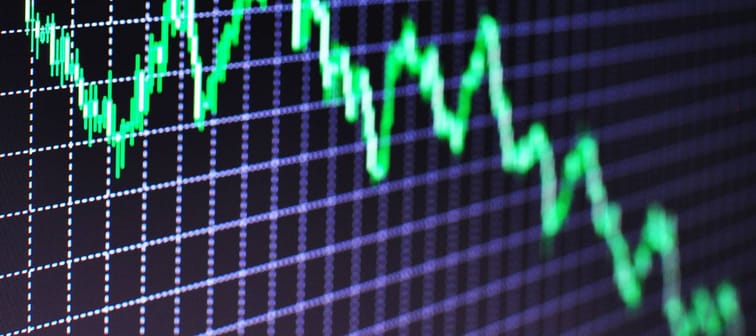So, like, what is the yield curve?

Lots of smart people are keeping an eye on the yield curve.
Simply put, the yield curve is the difference in interest rates between long- and short-term government bonds. Think 10-year Treasury notes versus two-year notes.
When things are going well for the economy, rates on long-term bonds are higher than rates on short-term bonds. In exchange for the risk that goes with locking away your money for a longer period, you get higher interest.
It's protection against the inflation that can flare up during a stronger economy and hurt the value of your money.
Streamline your debt repayment
Having a single loan to pay off makes it easier to manage your payments, and you can often get a better interest rate than what you might be paying on credit cards and car loans.
Fiona is an online marketplace offering personalized loan options based on your unique financial situation.
When you consolidate your debt with a personal loan through Fiona, you can roll your payments into one monthly installment. Find a lower interest rate and pay down your debt faster with Fiona today.
Find your rateWhat's the problem now?
But recently, long-term bond yields have been tumbling.
Nervousness over the U.S. trade war with China has prompted investors to buy up government bonds as a safe haven for their money. The demand for bonds has pushed their prices higher, and when that happens their yields — or interest rates — go lower.
What's causing experts to worry is that shorter-term investments are starting to pay higher interest than longer-term ones. That's called an inverted yield curve — and historically, it has spelled recession.
"When the yield curve inverts, it’s not the time to borrow money to take a vacation to Orlando," says Duke University finance professor Cam Harvey, in an interview with Research Affiliates. "This is the time to save."
If you don't have an emergency fund, you'd better get going on that quickly.
Why should we trust it?

An inverted yield curve indicates an economic storm is coming.
The interest rate flip-flop has some financial pros ready to turn on Wall Street's version of a tornado siren.
Here's why: The yield curve has accurately predicted every recession over the past 60 years. The sole exception was in the mid-1960s. But even then, the economy slowed down drastically, stopping just short of a recession.
Note that while an inverted yield curve can indicate a recession is coming, it's no help with telling us when that will happen.
Sometimes, a recession has come six months later. Other times, it has taken as long as two years.
Stop overpaying for home insurance
Home insurance is an essential expense – one that can often be pricey. You can lower your monthly recurring expenses by finding a more economical alternative for home insurance.
SmartFinancial can help you do just that. SmartFinancial’s online marketplace of vetted home insurance providers allows you to quickly shop around for rates from the country’s top insurance companies, and ensure you’re paying the lowest price possible for your home insurance.
Explore better ratesWhat should you do?
The last thing you want to do is panic. Because if everyone starts worrying about a recession, that can be enough to send the economy right into the tank.
But it doesn't have to be a self-fulfilling prophecy, says Professor Harvey.
"The inverted yield curve is a tool that allows consumers and investors to take measures which could indeed slow the economy as well as protect themselves," he says. "It could also maximize the chance we will experience a soft-landing recession."
And we can handle that, Harvey says.
So, don't do anything rash that could ultimately be stacking your own deck against you. Instead, keep spending as usual — and do your part to help keep the economy healthy.
Sponsored
Follow These Steps if you Want to Retire Early
Secure your financial future with a tailored plan to maximize investments, navigate taxes, and retire comfortably.
Zoe Financial is an online platform that can match you with a network of vetted fiduciary advisors who are evaluated based on their credentials, education, experience, and pricing. The best part? - there is no fee to find an advisor.







